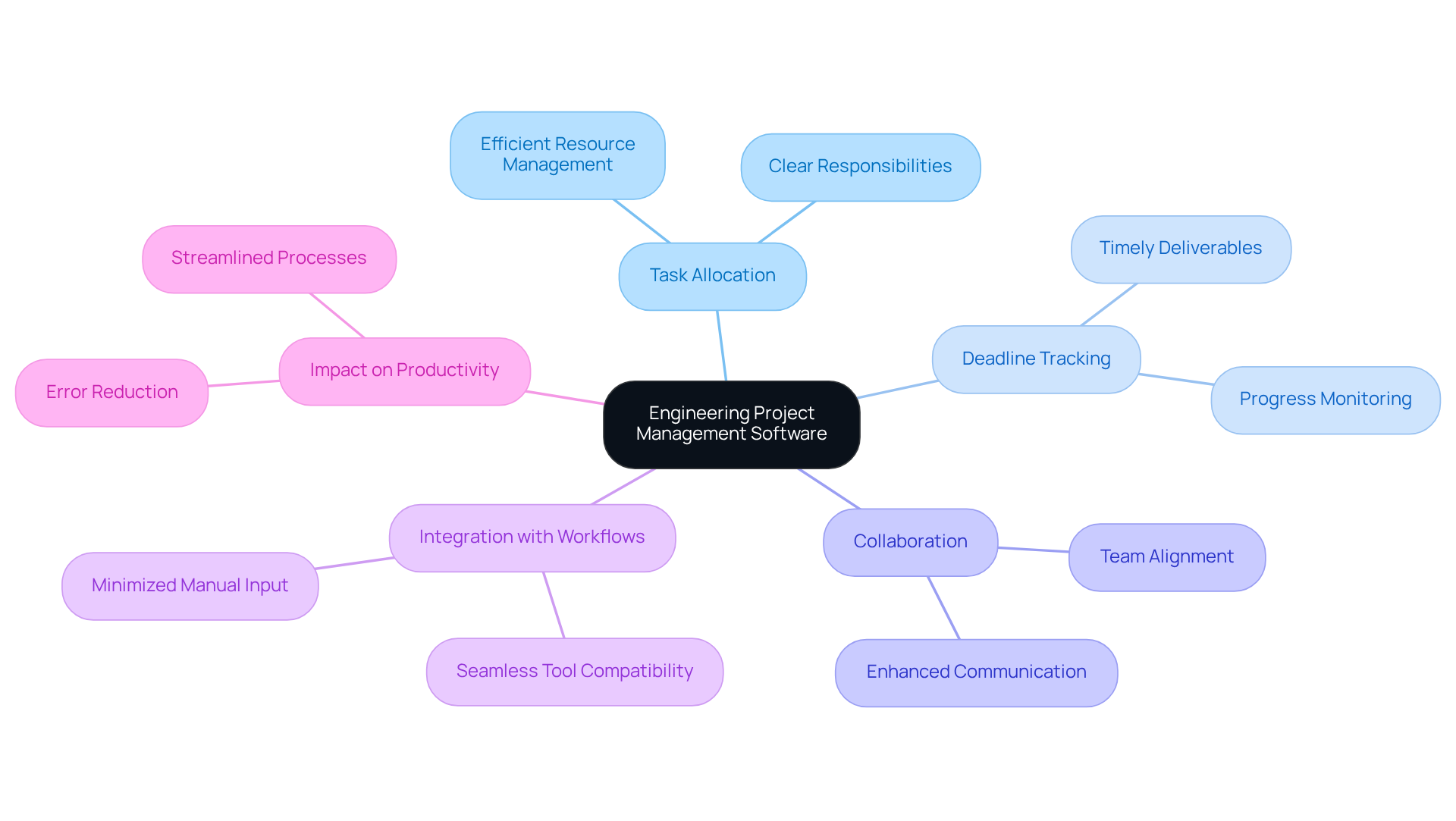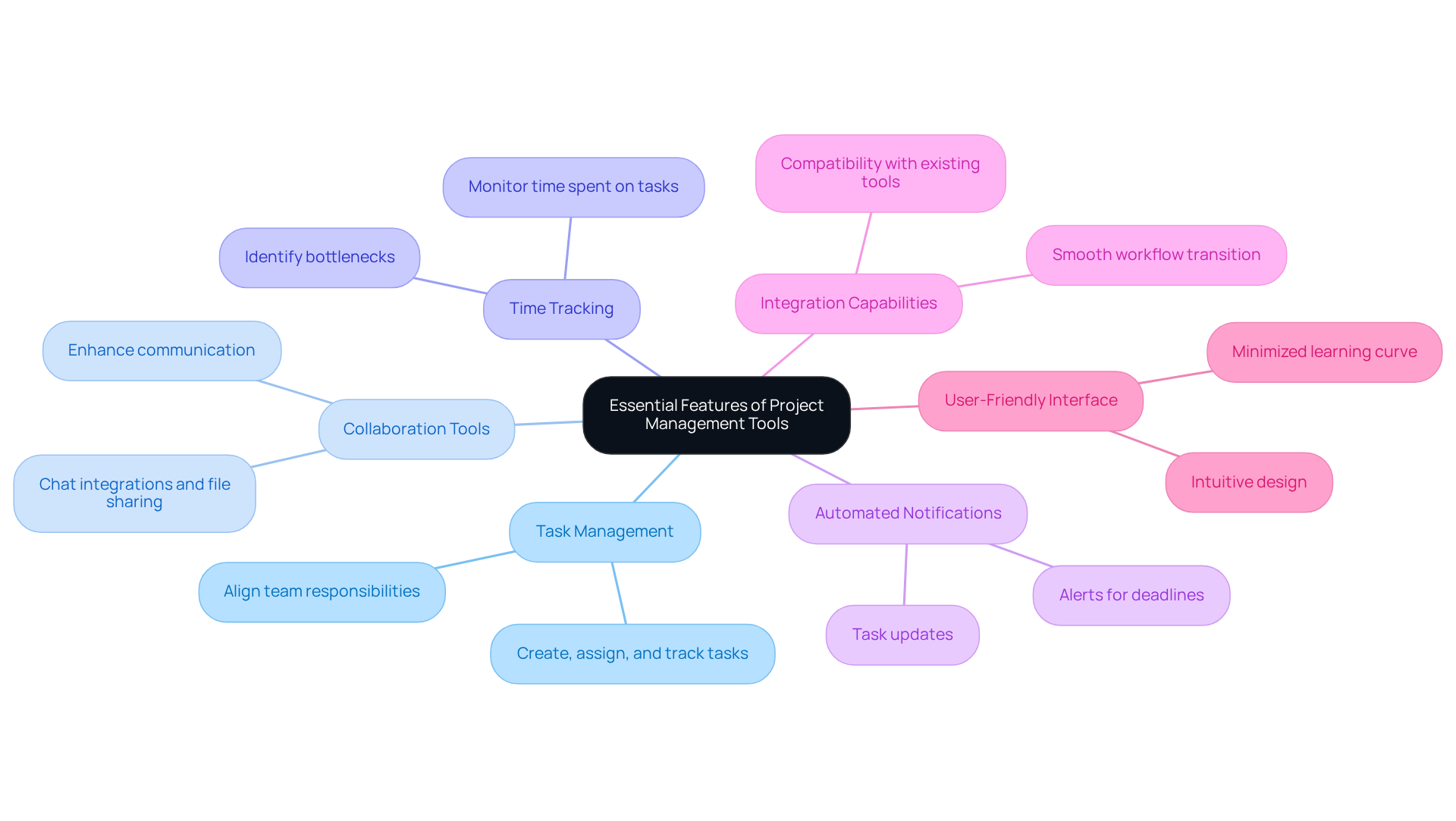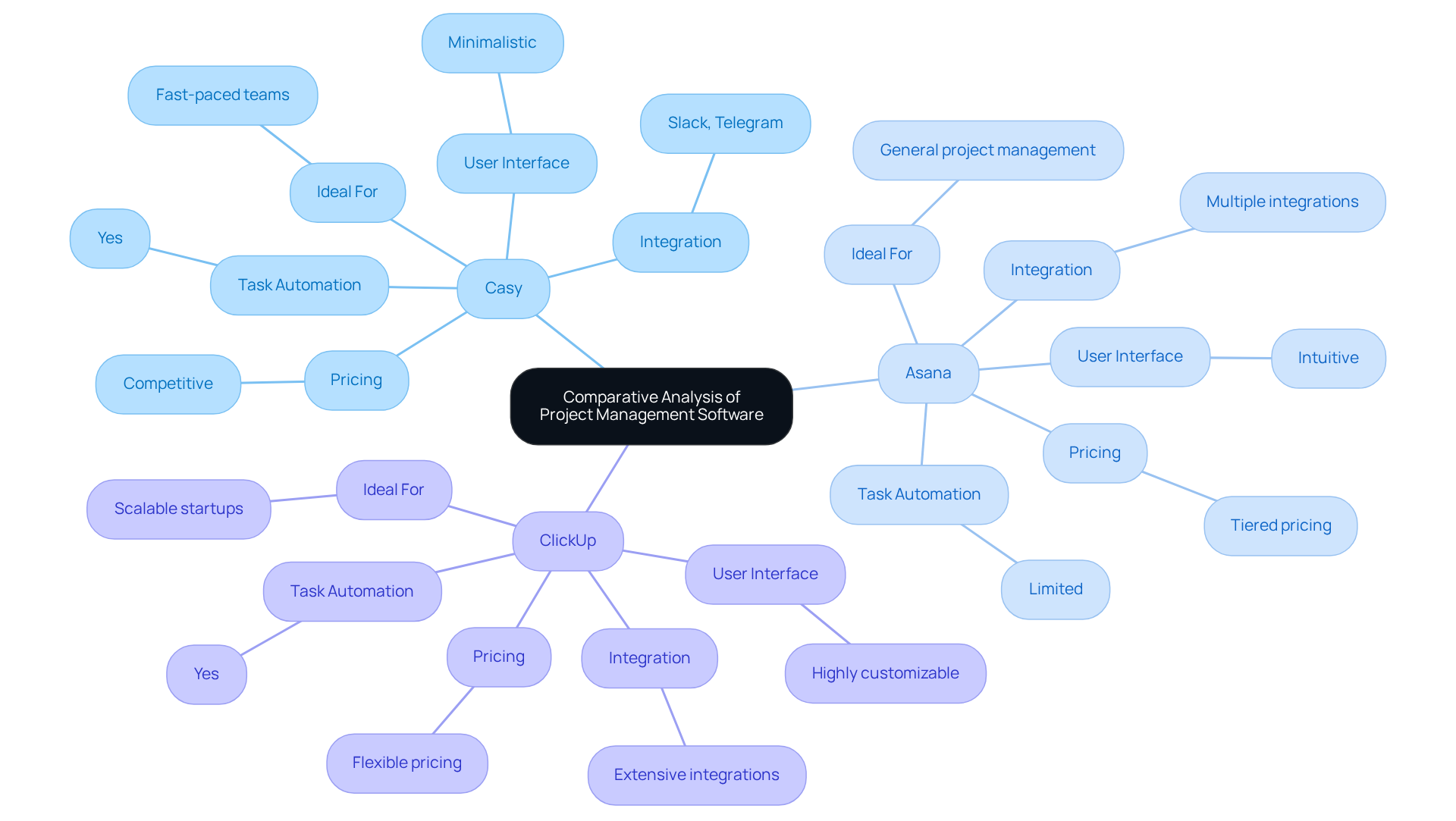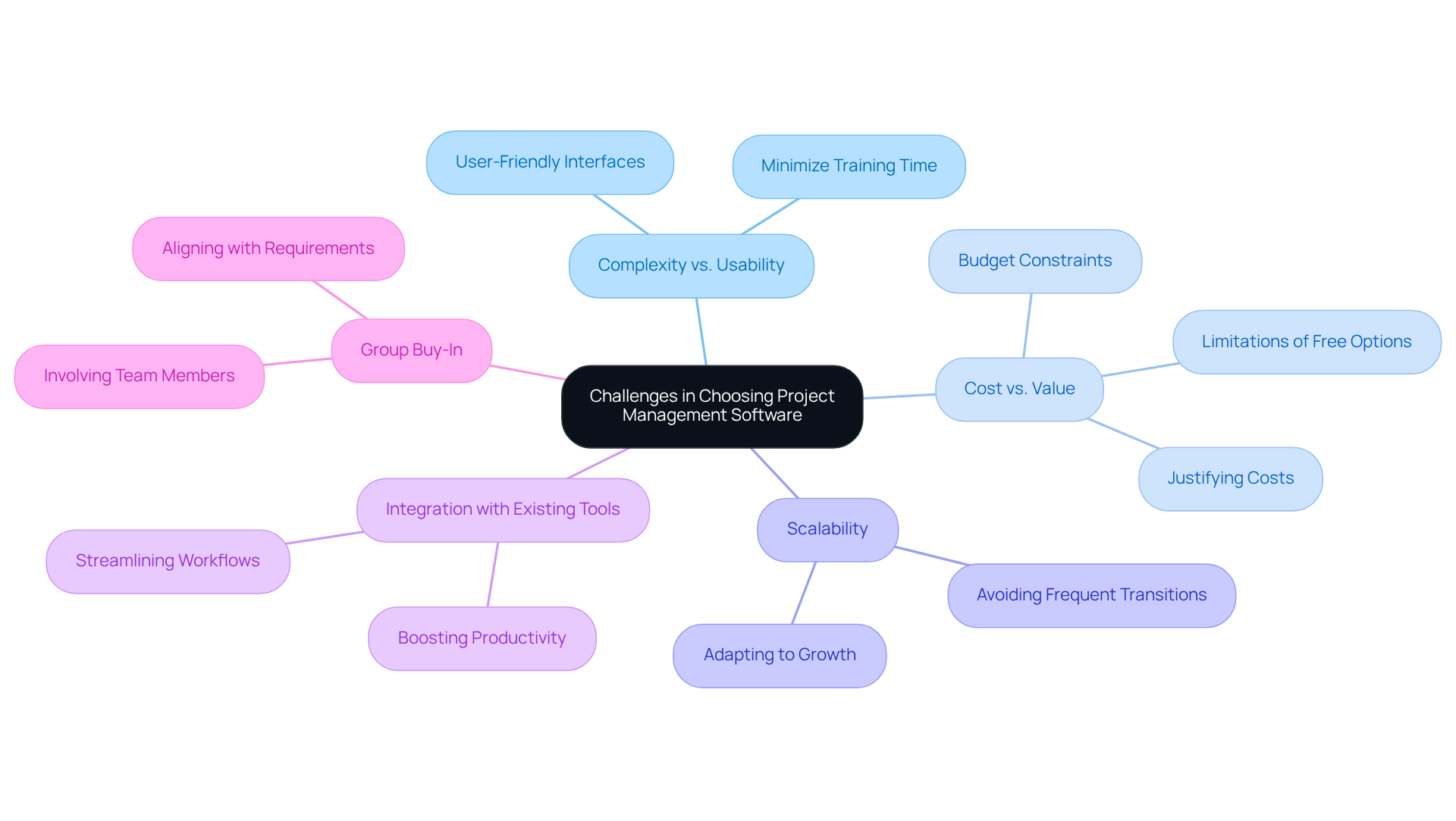Overview
The primary objective of this article is to conduct a comparative analysis of engineering project management software specifically designed for startups. It emphasizes the essential features and considerations necessary for effective software selection. The article highlights key software options—Casy, Asana, and ClickUp—each showcasing their unique features, integration capabilities, and user-friendliness. This analysis ultimately guides startups in making informed decisions that enhance productivity and foster collaboration within their teams.
Introduction
Engineering project management software stands as a cornerstone for startups navigating the complexities of project execution and team collaboration. In an environment marked by limited resources and high stakes, the selection of appropriate software is not merely beneficial; it is crucial for enhancing productivity and ensuring project success. Yet, amidst a plethora of options, how can startups discern which tools genuinely align with their unique needs? This article embarks on a comparative analysis of leading project management software tailored for startups, exploring essential features, benefits, and the challenges associated with choosing the right solution.
Understanding Project Management Software for Startups
Engineering project management software serves as an essential tool for groups striving to organize, execute, and oversee tasks with efficiency. For startups, which often operate under tight resource constraints and face significant risks, selecting the right tools can profoundly impact productivity and project success. These engineering project management software applications facilitate task allocation, deadline tracking, and collaboration, allowing teams to concentrate on their core activities instead of administrative burdens. Moreover, startups benefit from engineering project management software that seamlessly integrates with existing workflows, minimizes manual input, and enhances communication among team members.
Are you ready to elevate your startup's efficiency? The right engineering project management software can transform your operations, ensuring that every team member is aligned and informed. By leveraging engineering project management software, you can streamline processes, reduce errors, and foster a collaborative environment that drives success. Remember, in the fast-paced world of startups, every decision counts—choose wisely and empower your team with the tools they need to thrive.

Essential Features of Project Management Tools for Startups
When selecting project management tools, startups must prioritize key features that can significantly enhance their operational efficiency:
- Task Management: The ability to create, assign, and track tasks with ease is crucial. This feature ensures that all team members are aligned and aware of their responsibilities.
- Collaboration Tools: Effective communication is vital in any startup. Look for features that enhance collaboration among team members, such as chat integrations and seamless file sharing.
- Time Tracking: Monitoring how much time is spent on various tasks aids in effective workload management. This feature allows teams to identify bottlenecks and optimize productivity.
- Automated Notifications: Staying informed is essential. Automated alerts for deadlines and task updates help ensure that no important details are overlooked.
- Integration Capabilities: Compatibility with existing tools and platforms, like Slack or Google Workspace, is a must. This ensures a smoother workflow and reduces disruption during the transition.
- User-Friendly Interface: An intuitive design minimizes the learning curve, encouraging team adoption and maximizing productivity from the outset.
By focusing on these essential features, startups can equip themselves with the right tools to foster collaboration, enhance productivity, and ultimately drive success.

Comparative Analysis of Leading Project Management Software
In this comparative analysis, we examine three leading project management software options for startups:
-
Casy: An innovative tool that automates task creation from chat conversations, effectively reducing administrative overhead. It seamlessly connects with platforms such as Slack and Telegram, making it ideal for dynamic teams. Casy's standout feature is its ability to operate with minimal configuration, allowing teams to focus on their tasks without interruption.
-
Asana: Renowned for its intuitive interface and robust task management capabilities, Asana empowers teams to create initiatives, assign tasks, and monitor progress visually. With a variety of templates and integrations, it proves versatile for different workflows.
-
ClickUp: A highly customizable platform that integrates task management, time tracking, and goal setting into one cohesive solution. ClickUp is designed for scalability, making it well-suited for startups anticipating growth.
Comparison of Features:
-
Feature: Task Automation
- Casy: Yes
- Asana: Limited
- ClickUp: Yes
-
Integration:
- Casy: Slack, Telegram
- Asana: Multiple integrations
- ClickUp: Extensive integrations
-
User Interface:
- Casy: Minimalistic
- Asana: Intuitive
- ClickUp: Highly customizable
-
Pricing:
- Casy: Competitive
- Asana: Tiered pricing
- ClickUp: Flexible pricing
-
Ideal For:
- Casy: Fast-paced teams
- Asana: General project management
- ClickUp: Scalable startups

Challenges and Considerations in Choosing Project Management Software
When selecting project management software, startups must navigate several critical challenges:
- Complexity vs. Usability: Many tools present a wealth of features but can easily become overwhelming. Startups should prioritize user-friendly interfaces in engineering project management software that enable swift adoption and minimize training time.
- Cost vs. Value: Budget constraints are common among new businesses, yet it's essential to evaluate whether the features of the engineering project management software justify its cost. Free or low-cost options often lack vital functionalities, which can hinder progress.
- Scalability: As startups expand, their project management needs will inevitably change. Choosing engineering project management software that can scale alongside the business is crucial to avoid frequent transitions to new tools.
- Integration with Existing Tools: Ensuring that the chosen application integrates seamlessly with other tools already in use can significantly streamline workflows and boost productivity.
- Group Buy-In: The successful implementation of any new tool hinges on the team's acceptance. Involving team members in the selection process not only fosters buy-in but also ensures that the software aligns with their requirements.

Conclusion
Selecting the right engineering project management software is crucial for startups aiming to optimize their operations and drive success. By understanding the unique needs of a startup environment, teams can leverage these tools to enhance productivity, streamline processes, and foster effective collaboration. The choice of software can significantly influence a startup's ability to navigate challenges and seize opportunities in a competitive landscape.
This article has explored essential features that project management tools should offer, including:
- Task management
- Collaboration capabilities
- Time tracking
- Integration with existing systems
A comparative analysis of leading software options—Casy, Asana, and ClickUp—has highlighted their distinct advantages and suitability for various startup scenarios. Furthermore, the challenges faced in selecting the right software, such as balancing complexity with usability and ensuring scalability, were addressed, providing valuable insights for startups in their decision-making process.
Ultimately, the right project management software can be a game changer for startups. It empowers teams to work more efficiently, adapt to changing demands, and focus on innovation rather than administrative tasks. As startups continue to evolve, investing in the right tools will not only enhance their operational capabilities but also position them for long-term success in an ever-changing business environment. Embracing the right engineering project management software is not just a choice; it is a strategic move that can define the trajectory of a startup's journey.
Frequently Asked Questions
What is the purpose of engineering project management software for startups?
Engineering project management software helps startups organize, execute, and oversee tasks efficiently, which is crucial for productivity and project success.
Why is selecting the right project management software important for startups?
Startups often operate under tight resource constraints and face significant risks; the right tools can significantly impact their productivity and the success of their projects.
What are some key features of engineering project management software?
Key features include task allocation, deadline tracking, and collaboration tools that allow teams to focus on core activities rather than administrative tasks.
How does project management software benefit communication among team members?
It enhances communication by integrating seamlessly with existing workflows, minimizing manual input, and facilitating better collaboration.
What impact does effective project management software have on startup operations?
It can streamline processes, reduce errors, and foster a collaborative environment, ultimately driving success for the startup.
What should startups consider when choosing project management software?
Startups should choose software that aligns with their workflows, minimizes manual tasks, and empowers their teams to work efficiently.




